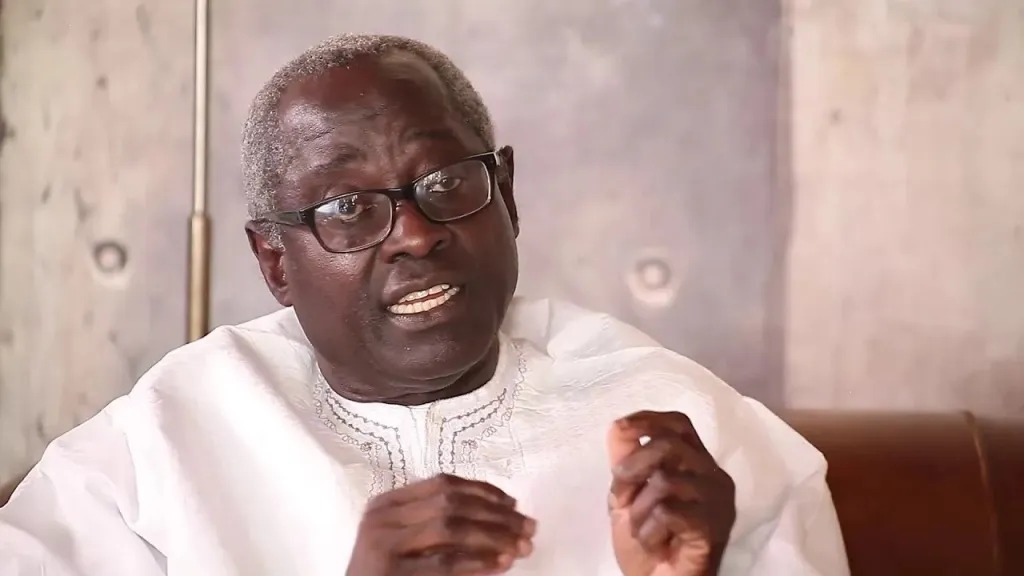Gambiaj.com – (Banjul, The Gambia) – In a powerful Labor Day reflection, Halifa Sallah, Secretary General of the opposition People’s Democratic Organization for Independence and Socialism (PDOIS), called for a radical transformation of the Gambian labor landscape, emphasizing the urgent need for constitutional empowerment, representation, and inclusion of organized labor in national decision-making.
Sallah, a longstanding advocate for social justice and participatory democracy, invoked the historical role of organized labor in Africa’s struggle for self-determination. Reflecting on his early memories of the labor movement and its leaders, such as Jallow and the legendary Edward Francis Small, he lamented the marginalization of unions in today’s Gambia and urged a return to a governance model where workers have both voice and agency.
“The most significant element in governance is protection of the working class — the very people whose labor keeps society running,” Sallah declared. “No public-private partnership or reform that affects workers should be allowed without the active participation of organized labor. That must be constitutionally entrenched.”
Sallah criticized the continued exclusion of unions from critical national arrangements, particularly in public-private partnerships such as those involving the Gambia Ports Authority and former state-owned enterprises like Gamtel and Gamcel.
He expressed deep concern over what he described as “sophisticated retraining schemes” that fail to compensate workers or protect their rights.
A Call For a National Conversation With Organized Labor on Workers’ Rights
Drawing on the case of dockworkers, Sallah revealed they have been fighting for over a decade for fair compensation under arrangements that deny them foreign exchange earnings due to services rendered at the ports.
“Every dockworker should have built a mansion,” he remarked, citing calculations showing massive underpayment and lack of recognition of their labor.
“When you examine these contracts, you’ll find a glaring omission — labor is not involved. That is a failure of the system,” he said, adding that efforts to engage both the former Yahya Jammeh and current Adama Barrow administrations had been ignored.
Sallah proposed a structural overhaul in how labor is integrated into the governance process.
He argued that the right to freedom of association — guaranteed under Section 25 of the Constitution — must be actualized through the empowerment of unions, women’s groups, youth, and other community-based organizations. “Democracy is not just about voting. It’s about involving people in the administrative life of society,” he said.
As a long-term legislator and constitutional thinker, Sallah also addressed the absence of workers’ representatives in the National Assembly.
He recalled that under colonial rule, Parliament was originally conceived with nominated seats for labor and minority groups, a practice that he believes should now evolve into a more democratic quota-based system.
“Not everyone can win an election in general society, but their interests must still be protected. We must ensure that organized labor, persons with disabilities, and women all have constitutionally guaranteed representation in our legislative and policy-making institutions,” he asserted.
He urged the Barrow administration to immediately initiate a national conversation with organized labor to ensure that workers’ voices shape future economic and legislative frameworks. This, he said, would embody a genuine democracy “of the people, by the people, for the people.”
Sallah concluded with a call for annual Labor Day forums to become meaningful policy-shaping moments. “On May Day, all relevant institutions — the Executive, Legislature, Judiciary, and labor bodies — should meet to review workers’ challenges and adopt resolutions that influence law and policy. That’s how you run a state of the people,” he declared.
With his impassioned address, Sallah once again positioned himself as a principled voice for democratic inclusion and economic justice, calling not only for solidarity but for structural transformation rooted in the power of organized labor.










